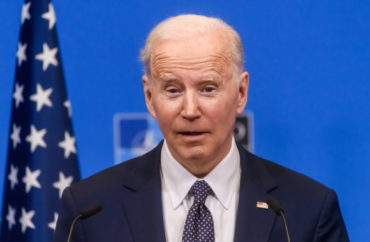
‘In my experience, politicians hide documents because they have something to hide’
After a trip to the Delaware Supreme Court, the University of Delaware has until July 22 to prove that its vast collection of then-U.S. Senator Joe Biden’s papers are immune from a Freedom of Information Act request made by Judicial Watch and the Daily Caller News Foundation.
Delaware Superior Court Judge Mary Johnston ordered the university to submit evidence that archives Biden gave the school in 2012 are not subject to a public records request and consequently public access.
The order came after the Delaware Supreme Court overturned a previous Superior Court decision that held that the papers were not subject to FOIA and therefore not open to public access.
In a recent email to The College Fix, Judicial Watch President Tom Fitton said there is “significant public interest in the materials.”
“In my experience, politicians hide documents because they have something to hide,” he said.
Judicial Watch, a conservative government watchdog group, reportedly sought access to 1,850 boxes of material plus electronic files, visitor logs, communication with the Biden staff, and the gift agreement itself.
After losing in the Delaware Superior Court, the plaintiffs appealed and now seek only the inter-staff communication and gift agreement requests, a move to have the best chance of success in court.
“Unless it is clear on the face of the request that the demanded records are not subject to FOIA, the public body must search for responsive records. A description of the search and the outcome of the search must be reflected through statements made under oath, such as statements in an affidavit, in order for the public body to satisfy its burden of proof,” the Supreme Court ruling stated.
“… On remand, the University bears the burden to create a record from which the Superior Court can determine whether the University performed an adequate search for responsive documents.”
Delaware’s Freedom of Information Act requires that “university documents relating to the expenditure of public funds shall be ‘public records,’” according to the University of Delaware’s own website.
Judicial Watch originally made the request in April 2020, labeling it the “fight for Joe Biden’s senate records.”
At the time, Judicial Watch expressed concern on behalf of citizens who wanted to understand the facts behind Biden’s controversial history before he was elected to office.
“Maybe he’s innocent, but if so, why are they hiding his records?” Fitton said as the case kicked off.
When asked for comment by The College Fix, Andrea Boyle Tippett, a University of Delaware spokesperson, said that “No public funds are involved with the archiving of the Biden Senatorial Papers collection.”
Should the court agree, Sen. Biden’s papers could be out of the public eye until after his public career has finished.
While they wait for the University of Delaware to comply with the court, plaintiffs’ counsel celebrated their victory at the Delaware Supreme Court.
“Our litigation helped define what the actual procedures are and what the institution has to submit to meet the burden of proof of what is subject to FOIA,” said legal counsel Theodore Kittila, managing partner at Halloran Farkas + Kittila LLP, in an interview with The College Fix last week.
Halloran Farkas + Kittilla represent Judicial Watch and the DCNF.
With the Delaware Supreme Court decision, Kittila and fellow counsel William Green, Jr. said they are confident their case represents landmark jurisprudence on the issue.
“The point of the whole case is how FOIA will be applied in the future. We had made the case that you need to have more than somebody saying [it is exempt],” Kittila said.
Added Green: “Over the decades the university has essentially taken the position that they can send an email and deny a request. It’s a new question as to how many additional bites … the university will get to satisfy its burden [of proof].”
The University of Delaware as the defendant both marks the importance of the case and also represents a unique challenge, according to observers.
Unlike many schools, the University of Delaware is “not fully private; not fully public,” and therefore “tried to exempt itself from large parts of FOIA” when the law was being crafted, Kittila and Green said.
“When we brought the first challenge to the superior court, the judge looked at what the university said and agreed with the exception of one thing. She wanted more information regarding the gift agreement,” Kittila said.
“The judge gave them another chance to make the argument,” and if the university fails to show it is exempt from FOIA, “then you lose,” Green said.
MORE: Lawsuit: U. Delaware ‘unjustly enriched itself’ during COVID-19 pandemic
IMAGE: Gints Ivuskans / Shutterstock
Like The College Fix on Facebook / Follow us on Twitter






Please join the conversation about our stories on Facebook, Twitter, Instagram, Reddit, MeWe, Rumble, Gab, Minds and Gettr.